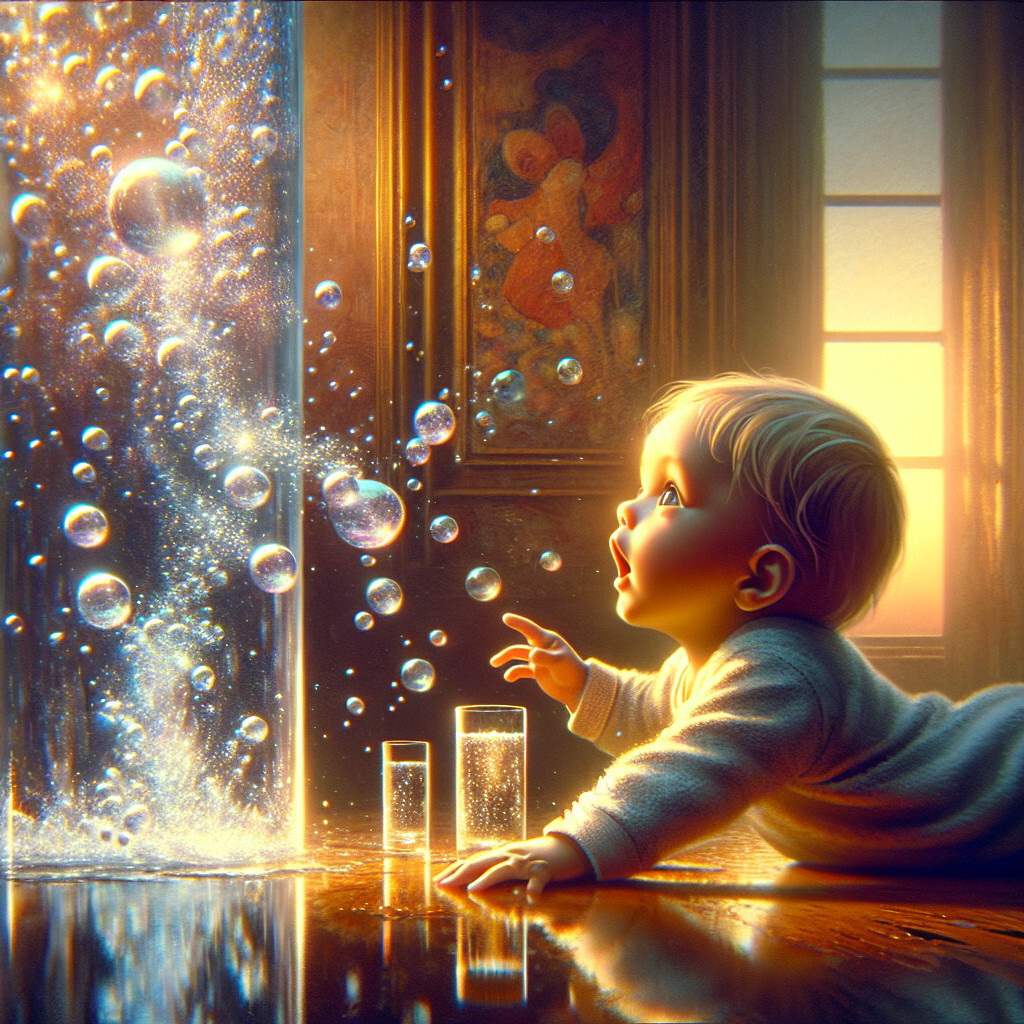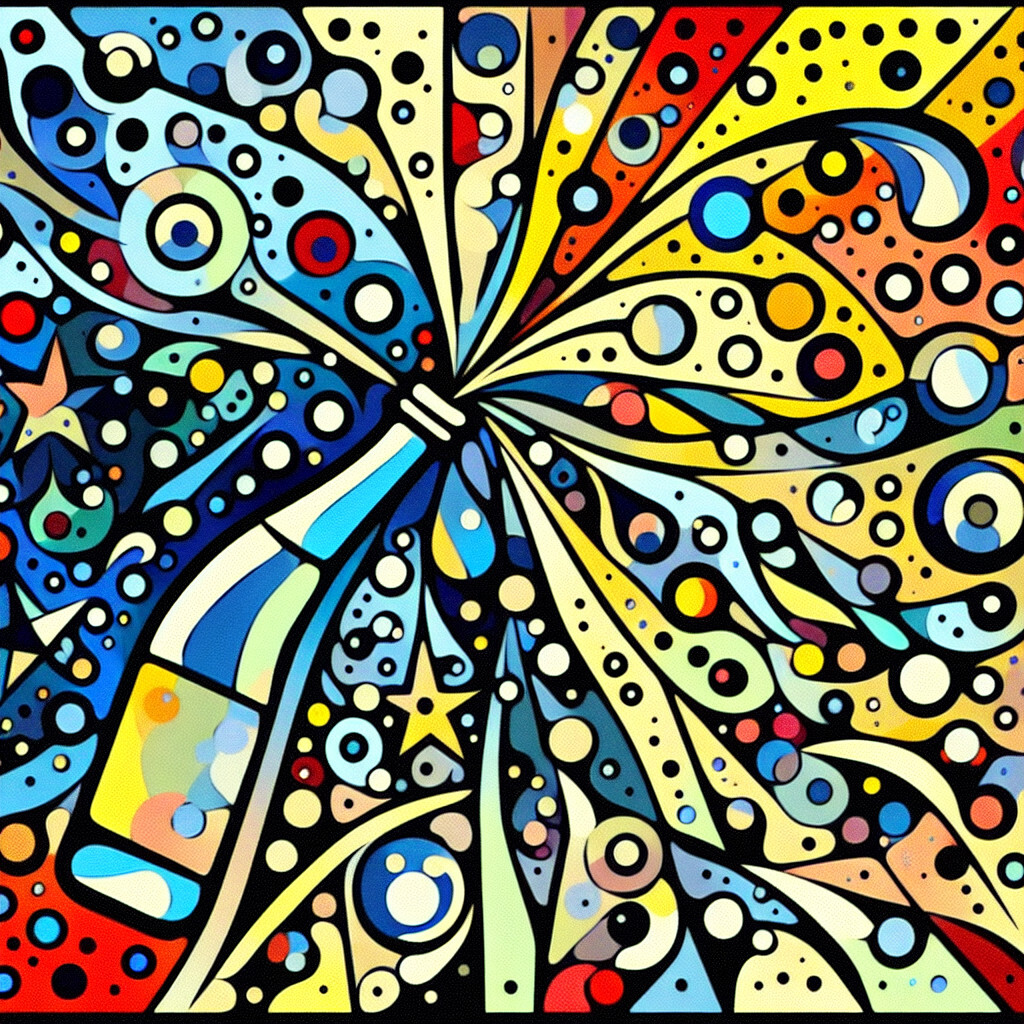-
Table of Contents
“Sparkling Water: Not Recommended for Baby’s Delicate System.”
Introduction

Sparkling water is generally not recommended for babies. While it’s not harmful, the carbonation can cause gas and discomfort in their little tummies. Additionally, it lacks the necessary nutrients that babies need for growth and development. Therefore, it’s best to stick to breast milk, formula, and plain water for hydration.
Understanding the Effects of Sparkling Water on Babies
Sparkling water, also known as carbonated water, is a popular beverage choice among adults due to its refreshing taste and potential health benefits. However, when it comes to babies, parents often wonder if it’s safe to introduce this fizzy drink into their little one’s diet. To address this concern, it’s essential to understand the effects of sparkling water on babies.
Firstly, sparkling water is essentially water that has been infused with carbon dioxide under pressure. This process gives the water its characteristic bubbles and fizz. While it’s a calorie-free and sugar-free alternative to sugary drinks for adults, it may not be the best choice for babies. The primary reason is that the carbonation in sparkling water can cause gas and bloating, leading to discomfort and potential digestive issues in babies. Their digestive systems are still developing and may not be able to handle the gas produced by the carbonation effectively.
Moreover, the acidity in sparkling water can potentially harm a baby’s teeth. Although it doesn’t contain sugar, sparkling water is more acidic than regular water due to the carbonation process. This acidity can erode tooth enamel over time, leading to dental problems. Given that babies’ teeth are still developing and are more sensitive, it’s advisable to avoid any drinks that could potentially harm their dental health.
Another point to consider is the choking hazard associated with drinking sparkling water. The bubbles in the water can cause a choking risk for babies, especially those under the age of one. Babies are still learning how to swallow properly, and the bubbles can interfere with this process, leading to potential choking incidents.
Furthermore, while sparkling water is hydrating for adults, it should not replace regular water in a baby’s diet. Babies need plain water for proper hydration and development. Replacing regular water with sparkling water could lead to inadequate hydration, as babies might not drink as much of it due to the carbonation.
In addition to these potential risks, it’s also worth noting that sparkling water doesn’t offer any nutritional benefits for babies. Unlike breast milk or formula, which are packed with essential nutrients, sparkling water is devoid of any nutritional value. Therefore, it doesn’t contribute to a baby’s growth and development in any way.
In conclusion, while sparkling water is a healthy beverage choice for adults, it’s not recommended for babies due to potential digestive issues, dental health risks, choking hazards, and lack of nutritional value. As a parent, it’s always best to consult with a pediatrician before introducing any new foods or drinks into your baby’s diet. They can provide personalized advice based on your baby’s age, health, and developmental needs. Remember, when it comes to your baby’s health, it’s always better to err on the side of caution.
Is Sparkling Water Safe for Your Baby’s Health?
Sparkling water, also known as carbonated water, has gained popularity in recent years as a refreshing and healthier alternative to sugary sodas. However, when it comes to the health and well-being of our little ones, it’s natural to question whether this fizzy beverage is safe for babies.
Firstly, it’s important to understand what sparkling water is. It’s simply water that has been infused with carbon dioxide under pressure, which gives it its characteristic bubbles and fizz. Some brands may also add minerals or natural flavors for taste. Despite its simple composition, the question of its suitability for babies is not as straightforward.
The primary concern with giving sparkling water to babies is the potential for gas and bloating. The carbonation in sparkling water can lead to a build-up of gas in the stomach, which can cause discomfort, bloating, and even colic in babies. Babies have immature digestive systems that are still developing, making them more susceptible to these issues. Therefore, it’s generally recommended to avoid giving sparkling water to babies to prevent any potential digestive discomfort.
Moreover, the acidity of sparkling water is another factor to consider. Carbonated water has a lower pH than regular water, making it more acidic. While this acidity is not harmful to adults, it can potentially irritate a baby’s sensitive stomach lining and cause acid reflux. This is another reason why health professionals advise against giving sparkling water to babies.
Additionally, while sparkling water is a healthier choice than sugary drinks for adults, it’s not necessarily the best choice for babies. Babies have specific nutritional needs that are best met by breast milk or formula during the first six months of life, and then by a combination of breast milk or formula and solid foods after six months. Water, whether still or sparkling, doesn’t provide the nutrients that babies need for their growth and development. Therefore, it’s best to stick with breast milk or formula for babies under six months and to introduce water gradually after six months, alongside solid foods.
Furthermore, it’s worth noting that not all sparkling waters are created equal. Some brands may add sugars, artificial sweeteners, or other additives that are not suitable for babies. Therefore, if you do choose to give your baby sparkling water, it’s crucial to read the label carefully and choose a brand that doesn’t contain any added sugars or artificial ingredients.
In conclusion, while sparkling water is not inherently harmful, it’s not the best choice for babies due to potential digestive discomfort, its acidity, and lack of nutrients. It’s always best to consult with a healthcare professional before introducing any new foods or drinks into your baby’s diet. As parents, it’s our responsibility to make informed decisions about what we feed our children, and when it comes to sparkling water, it seems the safest choice is to wait until they’re older.
The Truth about Giving Sparkling Water to Babies
The question of whether sparkling water is suitable for babies is one that has been asked by many parents. This is largely due to the increasing popularity of sparkling water among adults, which has led to curiosity about its potential effects on infants. However, the truth about giving sparkling water to babies is not as straightforward as it may seem.
Firstly, it is important to understand what sparkling water is. Essentially, it is water that has been infused with carbon dioxide under pressure. This process gives the water its characteristic fizz and tangy taste. While it may seem harmless, there are several reasons why sparkling water may not be the best choice for babies.
One of the main concerns is the high acidity level in sparkling water. The carbonation process increases the acidity of the water, which can potentially harm a baby’s developing teeth. Although baby teeth are temporary, they play a crucial role in helping the child learn to chew and speak properly. Therefore, maintaining their health is of utmost importance. Regular consumption of sparkling water can lead to dental erosion, which is the wearing away of the outermost layer of the tooth, known as the enamel. Once the enamel is damaged, it cannot be replaced, leading to sensitivity and increased risk of cavities.
Another concern is the potential for choking. The bubbles in sparkling water can cause a choking hazard for babies who are still learning how to swallow properly. This is especially true for younger infants who have not yet developed full control over their swallowing reflexes. Additionally, the sensation of the bubbles can be uncomfortable or even distressing for some babies, leading to refusal to drink or eat.
Furthermore, sparkling water can fill up a baby’s tiny stomach, leaving less room for nutrient-dense foods and breast milk or formula, which are vital for their growth and development. This can lead to nutritional deficiencies if sparkling water is given regularly in place of other more nutritious drinks.
It’s also worth noting that while sparkling water is typically free of sugars and artificial sweeteners, some brands do add these ingredients. Consuming these added sugars can contribute to obesity and tooth decay in babies. Therefore, it’s essential to read labels carefully if you do choose to give your baby sparkling water.
In conclusion, while sparkling water is not inherently harmful, it is not the best choice for babies due to its high acidity, potential choking hazard, and the possibility of filling up a baby’s stomach, leaving less room for more nutritious foods and drinks. It’s always best to consult with a pediatrician or a registered dietitian before introducing any new foods or drinks into your baby’s diet. They can provide personalized advice based on your baby’s age, developmental stage, and overall health. As a general rule, for babies under six months, breast milk or formula should be the only source of hydration, and for older babies, plain water is the safest and most beneficial choice.
Debunking Myths: The Impact of Sparkling Water on Infant Health
The topic of infant nutrition is one that is often fraught with myths and misconceptions, particularly when it comes to the introduction of new beverages into a baby’s diet. One such beverage that has been the subject of much debate is sparkling water. Many parents wonder, is sparkling water okay for babies? The answer, as with many aspects of infant nutrition, is not as straightforward as one might hope.
Firstly, it is important to understand what sparkling water is. It is simply water that has been infused with carbon dioxide under pressure, which gives it its characteristic fizz. It does not contain any sugars, calories, or caffeine, making it a healthier alternative to sugary drinks for adults. However, when it comes to infants, the situation is a bit more complex.
The primary concern with giving sparkling water to babies is the potential for gas and bloating. The carbonation in sparkling water can cause a build-up of gas in the stomach, leading to discomfort and potential digestive issues. Infants have immature digestive systems that are still developing, making them more susceptible to such issues. Therefore, it is generally recommended to avoid giving sparkling water to babies to prevent any potential discomfort.
Moreover, the American Academy of Pediatrics advises that babies under the age of six months should only consume breast milk or formula, as these provide all the necessary nutrients for growth and development. Introducing other beverages, including sparkling water, too early can interfere with the baby’s intake of these essential nutrients.
Even after six months, when solid foods are introduced, water should only be given in small amounts. The primary source of hydration and nutrition should still be breast milk or formula. If water is given, it should be plain, still water, not sparkling. This is because, in addition to the potential for gas and bloating, sparkling water can also be more acidic than still water due to the carbonation process. This acidity can potentially harm a baby’s developing teeth.
However, it is important to note that not all sparkling waters are created equal. Some brands may add sugars, artificial sweeteners, or flavorings to their products, which can be harmful to babies. Therefore, if for some reason a parent decides to give their baby sparkling water, it is crucial to ensure that it is pure, unflavored sparkling water with no added sugars or other ingredients.
In conclusion, while sparkling water is not inherently harmful, it is not recommended for babies due to the potential for gas, bloating, and tooth decay. The best course of action is to stick with breast milk or formula for the first six months, and then gradually introduce small amounts of plain, still water as part of a balanced diet. As always, if parents have any concerns or questions about their baby’s nutrition, they should consult with a pediatrician or a registered dietitian. Debunking myths and understanding the impact of various foods and beverages on infant health is crucial for ensuring the well-being of our little ones.
Q&A
1. Question: Is it safe to give sparkling water to babies?
Answer: No, it’s not recommended to give sparkling water to babies. The carbonation can cause discomfort and bloating.
2. Question: Can sparkling water harm a baby’s developing teeth?
Answer: Yes, sparkling water can potentially harm a baby’s developing teeth. It is slightly acidic and frequent exposure can lead to dental erosion.
3. Question: Can babies drink sparkling water if it’s diluted with juice?
Answer: No, even if diluted with juice, sparkling water is not recommended for babies due to its carbonation and potential acidity.
4. Question: At what age can a child start drinking sparkling water?
Answer: It’s generally safe for children to start drinking sparkling water around the age of 2, but it’s always best to consult with a pediatrician first.
Conclusion
In conclusion, sparkling water is not recommended for babies as it may contain added sugars, artificial flavors, and sodium, which are not suitable for their developing bodies. Additionally, the carbonation can cause stomach discomfort and gas. Babies should primarily be given breast milk or formula, and small amounts of plain water if needed.





